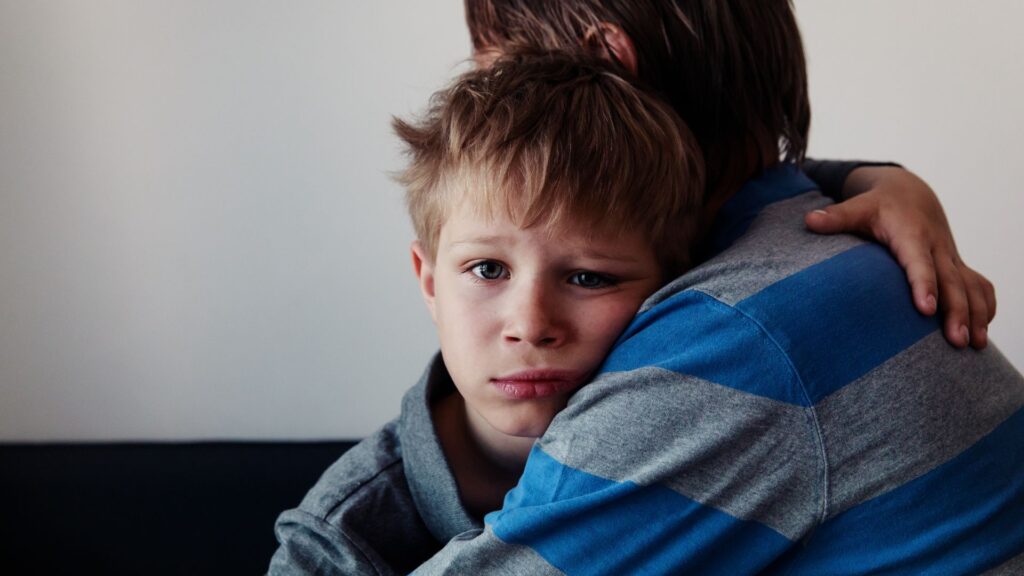Autism is a developmental disorder many individuals experience differently, which makes reaching a diagnosis much more difficult. Parents who may wonder if their child has autism often feel overwhelmed and discouraged by the lengthy and sometimes trivial process they must endure to find answers. These feelings can then hinder their desire to take the necessary steps toward a diagnosis, which is the antithesis of what autism care emphasizes.
In truth, the autism testing, screening, and diagnosis process is no walk in the park. These steps take time, patience, and dedication for anyone curious about their child’s development and future. With that said, no parent should ever feel discouraged when seeking answers for their child’s well-being. ABA Centers of New Jersey prioritizes a reliable diagnosis process for autism spectrum disorder (ASD) and can help you get the results you’ve been looking for. To ensure you have the necessary information, let’s closely examine the many steps of the autism testing, screening, and diagnosis processes.
Step One: Look for Early Signs of Autism
Before we explore the autism testing, screening, and diagnosis process, it’s important to see what sort of early signs may indicate that a child has autism spectrum disorder. Certain signs that a child may exhibit include:
- Preferring to play alone
- Not responding when you say their name
- Not smiling when expected
- Not responding to facial expressions
- Not looking at objects when prompted to do so
- Exceptional memory for songs, letters, or numbers
- Difficulty socializing with other children
Sensory-related issues are also something to monitor in your child’s behavior. Be sure to look for high sensitivity to textures, light, scents, and sounds. These complications may amplify in public settings, especially unfamiliar ones.
Step Two: Developmental Monitoring
If your child displays any of these early signs, your next step is to engage in developmental monitoring, which you can do either alone or with the help of other family members. This process calls for close attention to your child’s growth and development as time passes in their early years.
The best way to undergo developmental monitoring is by observing whether your child reaches certain milestones related to behavior, speech, learning, movement, and play. Fortunately, the CDC offers a comprehensive and easy-to-follow guide on developmental milestones with various free tools.
If your child’s development isn’t in line with these milestones, your best action is to consult a family doctor or pediatrician. During an appointment, ask if they could provide regular autism developmental monitoring checks. Aside from running through some talk and play exercises with your child, a doctor may also ask further questions regarding your child’s behavior, so be sure to have a complete list of areas or concerns you’d like to discuss. If the doctor deems that your child does showcase autism-related symptoms based on this monitoring, you will then move on to the autism screening process.
Step Three: Developmental Screening
Developmental screening for autism is a formal process usually only utilized if there’s a growing concern that your child may have ASD or autism-related challenges following monitoring. Most often, a nurse, doctor, or professional in education or healthcare will do a developmental screening.
Most autism care specialists suggest a child undergoes screening at 9, 18, and 24 months. Since developmental delays occur in 10-15% of preschool children, completing these screenings is an absolute priority for parents whether they believe their child may have autism or not. If doctors or professionals suspect a likelihood of ASD, you should also complete these tests for your child at 24 months and other ages if challenges continue.
During a developmental screening, parents will fill out a questionnaire regarding their child’s development, taking note of various elements that can range from:
- General or social behavior
- Thought processes
- Emotions
- Language and Speech
- Movement and cognitive function
The four primary tests most often used during developmental screening include:
- The Ages and Stages Questionnaire SE-2 – Parents and caregivers will fill out this questionnaire to highlight their child’s problem-solving, fine motor, gross motor, and communication skills.
- The Communication and Symbolic Behavior Scales Test – Parents and caregivers will complete this checklist when their child is 6 to 24 months old. The test uses parent interviews and direct observations of natural play to collect information on communication development.
- The Parents’ Evaluation of Developmental Status (PEDS) – This evidence-based screening elicits and addresses parents’ concerns about their child’s language, motor, self-help, behavior, and early academic skills. The PEDS highlights whether parent concerns suggest problems requiring referral while reducing “oh by the way” concerns.
- The Modified Checklist for Autism in Toddlers – This screening is for toddlers between 16 and 30 months. It asks parents to answer twenty questions about their child’s behavior to determine if they require further evaluation.
Some other factors may contribute to the likelihood of a child developing ASD. These can include low birth weight, preterm birth, and lead exposure. If any of these circumstances exist, you should undergo further developmental screening to rule out these factors.
Step Four: Autism Testing
Usually, a specialist such as a developmental pediatrician or child psychologist will administer autism testing. An important aspect to note is that no specific autism evaluation test exists; instead, experts will utilize a range of autism-specific tests, including:
- The Autism Diagnostic Observation Schedule – A specialist will observe your child’s repetitive behavior, communication, play, and social skills in this test. Tests will vary based on your child’s age.
- Autism Diagnostic Interview-Revised Test – This test involves a specialist speaking with you about your child’s past and current behaviors related to autism.
- The Childhood Autism Rating Scale, Second Edition – This 15-question test will help a specialist determine whether your child may have a condition that is not autism. Since some children may have a condition easily confused with ASD (such as ADHD), this test is extremely important in autism testing.
Step Five: Receiving an Autism Diagnosis
After completing the autism testing, screening, and monitoring processes, the next step is to receive an official diagnosis. Typically, a child psychologist, psychiatrist, pediatric neurologist, or developmental pediatrician will deliver the diagnosis with the guidance of the American Psychiatric Association’s Diagnostic and Statistical Manual (DSM-5) and the results of the various completed tests.
An autism diagnosis delivered by a specialist is considered an official medical diagnosis. Please note that a medical diagnosis of autism varies from an education determination, the latter of which occurs when a group of school or education professionals determines whether or not a child requires enrollment in special education.
ABA Therapy from ABA Centers of New Jersey: The Gold Standard of Autism Care
Following an official diagnostic report, you should explore proper schooling, care, and therapy options for your child. Look online at various resources, FAQs, programs, and other tools to learn more about these treatments. Among the many options available, one of the leading care programs for individuals with ASD is ABA therapy.
At ABA Centers of New Jersey, we offer the gold standard in autism testing, diagnosis, and treatment to help families feel confident in their selection. With ABA therapy, we help families create the brightest future possible by teaching children the developmental tools they need to lead fulfilling lives. Our therapists are licensed and board-certified, with expert experience in all forms of autism across the spectrum and with individuals of all ages.
If you need an official autism diagnosis or wish to learn more about our ABA therapy services, call us at (855) 640-7888 for a free consultation.








